Tunisians stage protest against president on 2011 uprising anniversary
Hundreds of Tunisians have taken to the streets to protest against President Kais Saied's July seizure of power on the 11th anniversary of the departure of the late dictator Zine El Abidine Ben Ali.
During the Friday rallies, some demonstrators chanted "down with the coup!" a reference to Saied's moves on July 25 last year, when he suspended the parliament and sacked the government.
Tunisian police used water cannon and batons to block the protesters from reaching and gathering in Habib Bourguiba Avenue in central Tunis, the cradle of the 2011 uprising and a focal point of demonstrations.
"Today, Saied's only response to opponents is with force and the security forces... it is so sad to see Tunisia like a barracks on the date of our revolution," Chayma Issa, an opposition activist, told Reuters.
The Interior Ministry said 1,200 people had taken part in the protest and its forces had exercised restraint.
According to AFP, nearly 300 protesters gathered on Mohamed V Avenue, where some broke through a police cordon before the troops used batons to force them back. Several protesters were reportedly arrested.
"Preventing free Tunisians from protesting on the revolution anniversary is shameful... and is an attack on freedoms and represents a big decline under the coup authorities," Reuters cited Imed Khemiri, a member of the suspended parliament from the Ennahda party, as saying.
The Friday protest took place in defiance of the new COVID-19 restrictions that came into force on Thursday.
Ennahdha and other political parties have described the ban on all gatherings and the imposed night curfew as politically motivated, saying they aimed to prevent anti-Saied protests.
On July 25, the president dismissed Prime Minister Hichem Mechichi and suspended parliament for 30 days, in a move denounced as a coup by Ennahda. The Tunisian president said at the time that his decision was meant to "save Tunisia, the state, and the Tunisian people," in the midst of growing public anger and protests against the government's handling of the COVID-19 pandemic.
Following his takeover, Saied dismissed several ministers and top officials, and announced a crackdown against corruption.
On September 29, Saied appointed Najla Bouden Romdhane, a little-known university professor, as the country's prime minister.
Saied's seizure of power initially appeared to win broad support among Tunisians amid an economic and the public health crisis, but it later caused growing opposition, even from major domestic players who had initially been supportive.
Last month, Saied announced a road map extending the suspension of parliament until new elections in December 2022 and called for a referendum on constitutional reforms in July.
The Friday protest coincided with the official anniversary of the 2011 uprising, which had previously been marked on January 14, when autocrat Zine al-Abidine Ben Ali fled Tunisia. But Saied last year changed the date to December 17, when young fruit seller Mohammed Bouazizi self-immolated to protest police harassment and unemployment in Sidi Bouzid. His death ignited the uprising.
Israel’s killing of senior commander threatens Gaza ceasefire: Hamas
Iran condemns ‘violent’ attack on Jewish event in Australia
Afghanistan’s regional integration key to lasting stability: Iran FM
VIDEO | 12 dead, dozens injured in mass shooting at Jewish event in Australia
‘Cinema Verité’ festival and a new geography of global resistance documentary
VIDEO | Iran seeking ouster of US forces from West Asia region: Analyst
VIDEO | Press TV's news headlines
BritCard protest march converges on London


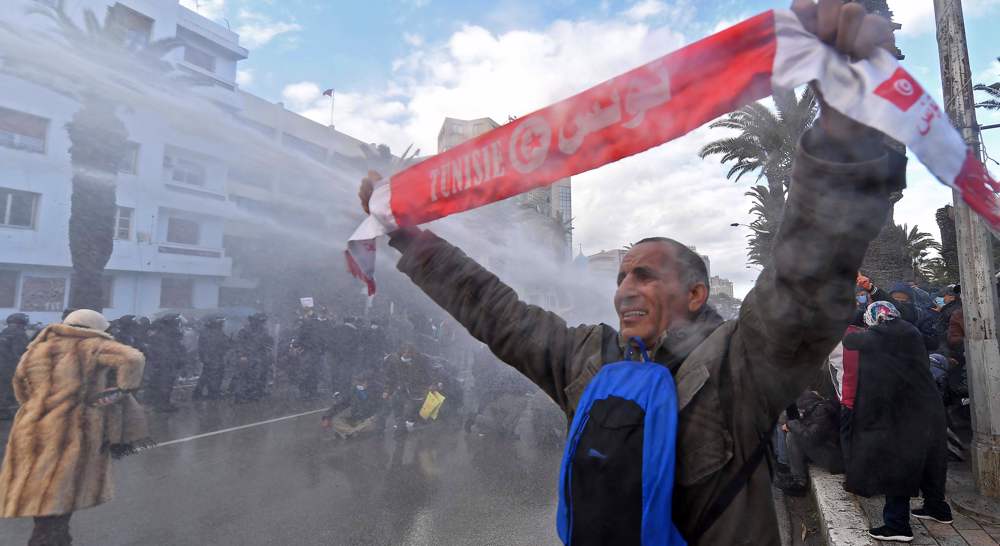
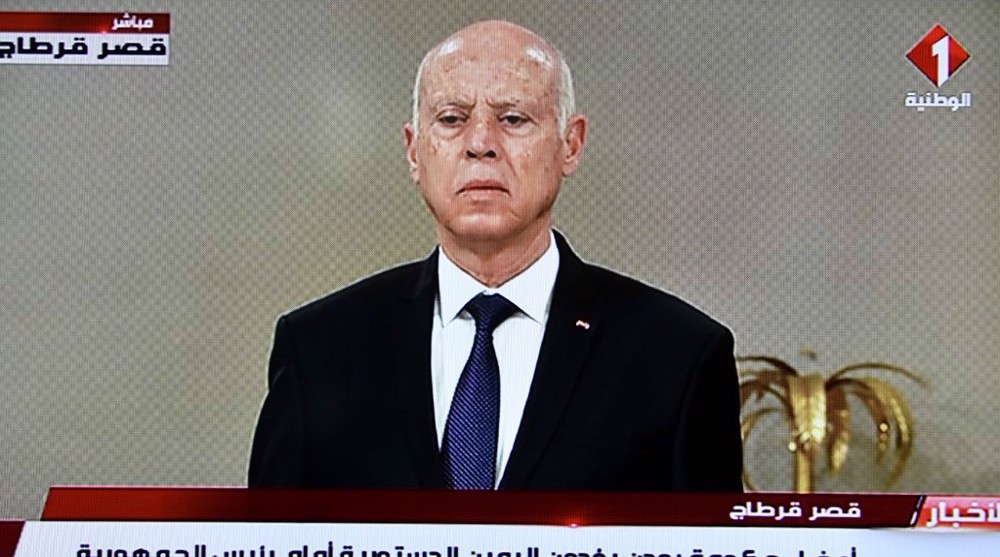
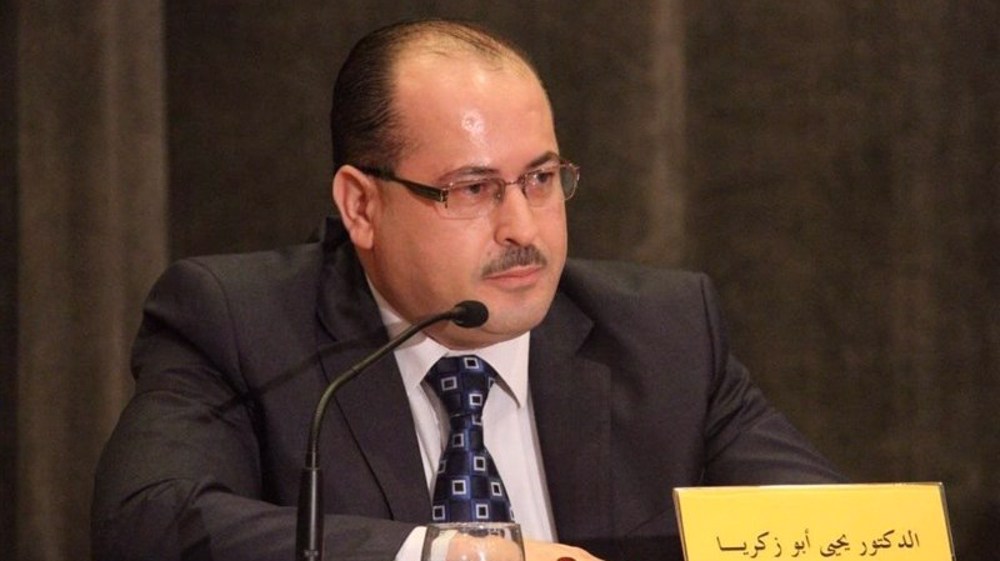
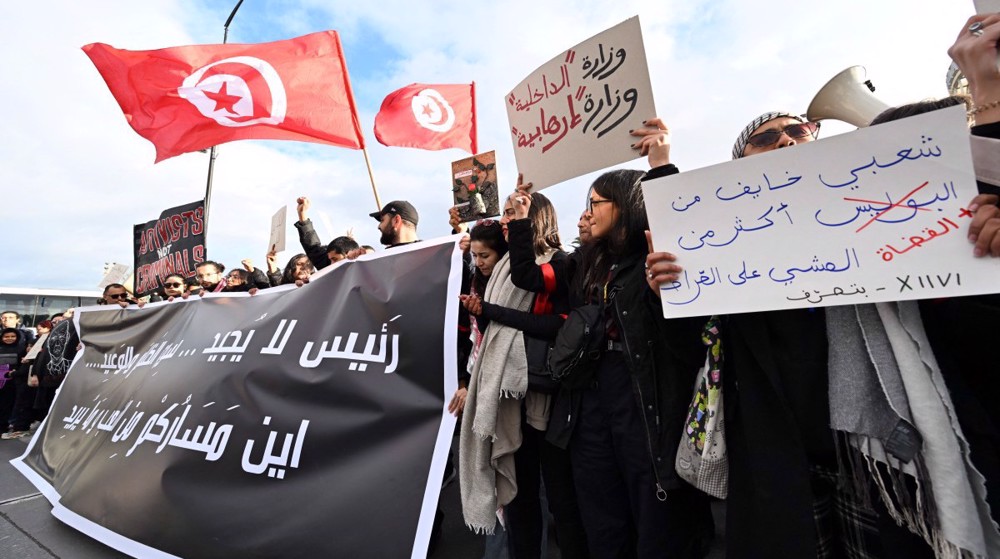
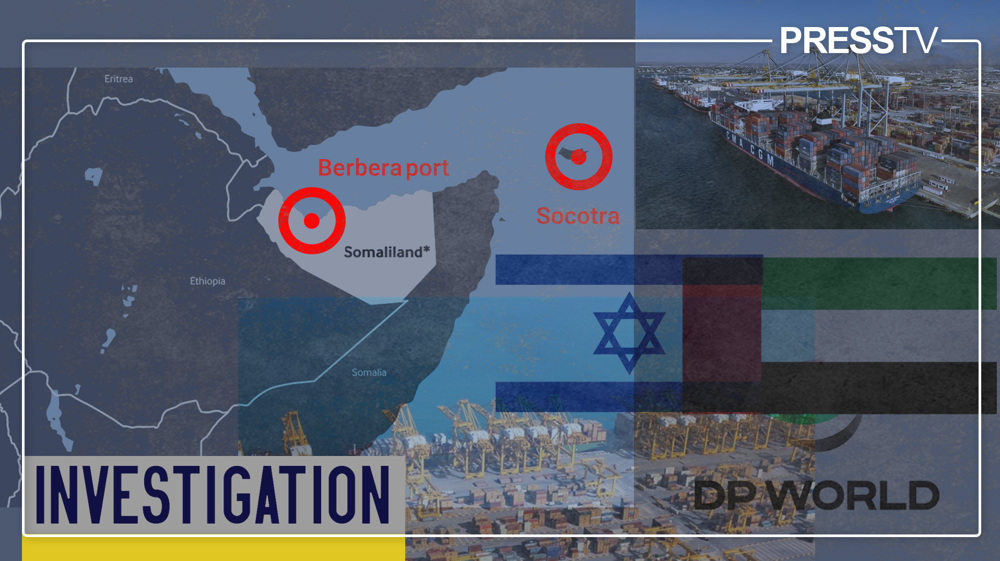



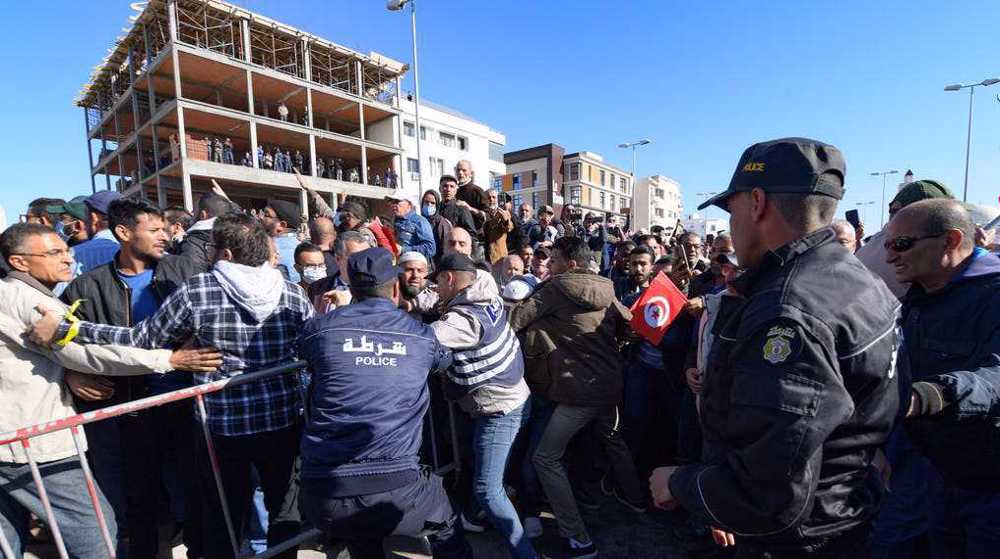
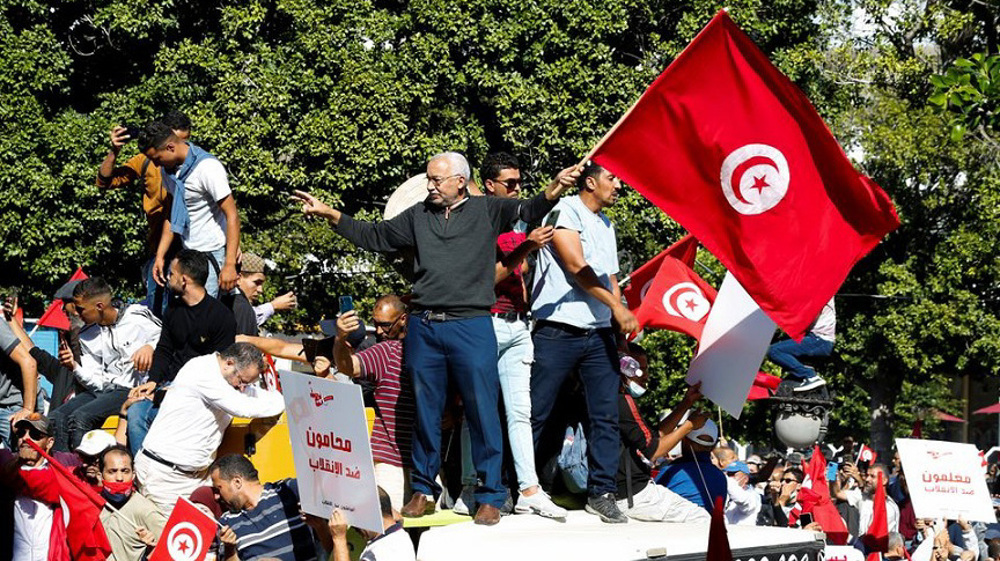
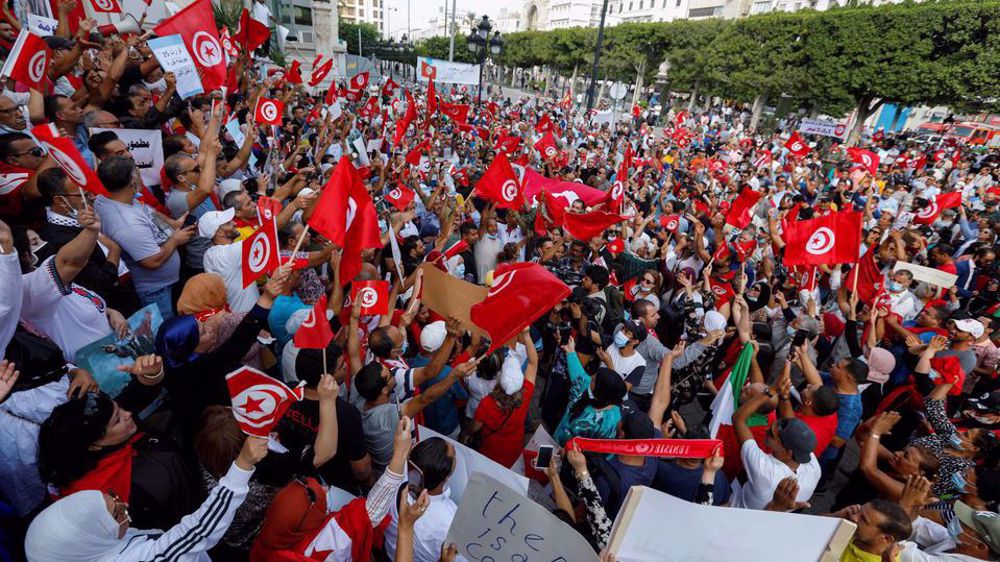

 This makes it easy to access the Press TV website
This makes it easy to access the Press TV website